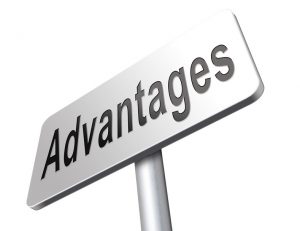
Choosing a material for your roof may give you headaches if you do not know too much about the advantages and disadvantages of each available option. To get a good idea of what roofing product you should choose, look at one of the Dallas Texas roofing companies product lines. You can choose between many materials, but in this article we will try to help you answer the question “Why should I choose a metal roof?”
Here are the benefits of a metal roof:
Adaptability
Common metal tiles are obviously made of metal, coated with a layer of zinc and a colored polymer that mimics the appearance of ordinary tiles. One of the greatest advantages of this coating material is precisely its versatility and adaptability, which makes it able to match almost any type of roof.
Lifetime
When properly installed, a metal roof should last even for 50 years, offering great protection against weather while requiring almost no maintenance. Metal is resistant to fire, mold, insects and rot. Guarantees vary greatly but most companies offer up to 50 years. Paint finishes usually have a limited warranty of 30 years.
Weight
Compared to most other materials, metal roofs are lightweight, which means that they do not affect the structure of the building, there is no need for additional structural support and, in some cases, can be installed on existing roofs. They do not retain water or snow, due to their slippery finish.
Ease of installation
Most metal coating materials come in sections with multiple shingle or 12 to 36′ pannels, which shortens significantly the installation process. If the roof is broken and a storm is on its way, shortening the installation with a day or two can be very important. Due to the lightweight of this material, you can also save time and resources on transportation, building up the supporting structure and installation.
Fire resistance
Since metallic roofing materials are non-combustible, they are typically rated very high in fire resistance (Class A). But part of the general classification of the roof also depends on the materials below the coat that could ignite in the event of intense heat. Most metallic roofs applied to a combustible material, such as wood shingles, have a lower rating.
Reflectivity and energy efficiency
Metal roofs reflect the heat from the sun, maintaining a certain level of thermal confort even if the roof is not insulated. This property makes it energy efficient, considering that you can save on air conditioning during the hot days. Although the material itself has a low insulation value, many metal roof systems has an open space between the metal coat and the roof, which allows proper ventilation and increases energy efficiency.
Low leaking potential
Most metal roofing materials can also be installed on low sloped roofs, providing the same efficiency when it comes to water leaks. Their slippery surface does not retain rain and snow, therefore water is less susceptible to infiltrate. Not to mention that the metal roof does not degrade due to the anti-corrosive coatings.
Metal roofs are not necessarily noisy
If in the past one of the reasons why metal roofs were not such a popular option is that they were noisy during storms, this problem has now been solved by coating the metal shingles and adding insulation to the roof.
